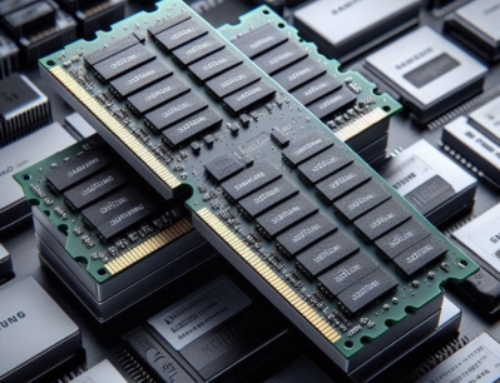Acceleration Bay LLC v. Activision Blizzard Inc.
- Court: Delaware State, Wilmington Division, District Court
- Case Number: 1:16cv453
- Filed: June 17, 2016
- Judges: William C. Bryson | Richard G. Andrews
- Case Type: Patent (830)
- Cause: Patent Infringement
Parties Involved
- Plaintiff(s): Acceleration Bay LLC
- Counsel for Plaintiff: Philip A. Rovner | Aakash Jariwala | Aaron M. Frankel | Austin Manes | Christina M. Finn | Cristina L. Martinez | Hannah Lee | James R. Hannah | Lisa Kobialka | Marcus A. Colucci | Melissa T.G. Brenner | Paul J. Andre | Shannon H. Hedvat | Jonathan A. Choa | Tanya Chaney | William Hannah | Yuridia Caire
- Expert witness for Plaintiff(s): Russell L. Parr
- Defendant(s): Activision Blizzard Inc.
- Counsel for Defendants: John C. Phillips , Jr.| Aaron E. Hankel | Anita Liu | B. Trent Webb | Brenna L. Kingyon | John D. Garretson | Jordan T. Bergsten | Lauren E. Douville | McGraw C. Maxwell | Morehan David | Joseph C. Masullo | Michael A. Tomasulo | Stephen J. Kraftschik
- Expert witness for Defendant(s): Scott Bennett, Ph.D. | David R. Karger, Ph.D. | Christine S. Meyer, Ph.D | Michael Mitzenmacher, Ph.D. | Nenad Medvidovic, Ph.D. | Dr. Harry Bims | Dr. Ricardo Valerdi | Patrick Conlin | Dr. Eric Cole | Catharine M. Lawton | Dr. Michael R. Macedonia | Dr. John P. Kelly | Michael Goodrich, Ph.D., | Dr. Stephen Wicker |
Verdict Information
- Verdict Date: May 3, 2024
- Total damages awarded to Plaintiff: $23.4 million
- World of Warcraft: $18 million
- Call of Duty: $5.4 million
About the Case
Cause
The lawsuit filed by Acceleration Bay, a technology licensing firm, against Activision Blizzard Inc., a gaming giant, alleged willful patent infringement of its networking patents. Acceleration Bay claimed that several of Activision Blizzard’s popular and lucrative video game products, including World of Warcraft (WoW), Destiny, and Call of Duty: Advanced Warfare, infringed on six of its patents (U.S. Patent Nos. 6,701,344, 6,714,966, 6,732,147, 6,829,634, 6,910,069, and 6,920,497).
Specifically, Acceleration Bay asserted that WoW’s Cross-Realm modes, Voice Chat capabilities, and Client Downloader utilized the patented networking technologies without authorization. The lawsuit also targeted the multiplayer modes in Destiny and Call of Duty: Advanced Warfare, alleging that their online multiplayer components relied on the same patented networking inventions.
Acceleration Bay provided detailed claim charts, mapping how each of the accused Activision Blizzard products infringed specific claims within the patents, serving as a technical blueprint for the alleged infringing activities.
The most serious allegation was that Activision Blizzard’s patent infringement was willful and deliberate. Acceleration Bay claimed that Activision Blizzard had been made aware of the patent infractions over a year prior but chose to continue manufacturing, using, selling, importing, and offering for sale the infringing products, disregarding Acceleration Bay’s intellectual property rights, even after receiving notice.
Injuries
Acceleration Bay claimed it suffered major harm from Activision Blizzard’s unauthorized use of its patented networking technologies, which constituted willful patent infringement. At the core of the injuries was the violation of Acceleration Bay’s exclusive rights granted by the patents. By using the patented inventions in popular games like World of Warcraft, Destiny, and Call of Duty without permission, Activision Blizzard infringed on Acceleration Bay’s right to exclude others from practicing the patented technologies.
This willful patent infringement caused irreparable harm that could not be fully compensated by money damages alone. It prevented Acceleration Bay from profiting from its inventions through licensing or other means. With Activision Blizzard using the patented technologies for free, Acceleration Bay lost out on substantial potential revenues and profits it should have earned as the patent owner.
Additionally, Acceleration Bay asserted that the willful patent infringement damaged its reputation and disrupted its ability to license the patents in the future. As a technology licensing company, Acceleration Bay’s business relied on enforcing its exclusive patent rights and negotiating licenses. Activision Blizzard’s actions undermined Acceleration Bay’s standing and bargaining position.
Acceleration Bay argued these injuries went beyond just lost profits and warranted injunctive relief to stop the patent infringement, as well as enhanced monetary damages. The multifaceted harm included violated exclusivity, lost revenues, future earning impairment, and reputational damage stemming from Activision Blizzard’s unrepentant willful patent infringement despite being notified of the patents.
Damages
Acceleration Bay sought judgment against Activision Blizzard for willfully infringing six patents: the ‘344 Patent, ‘966 Patent, ‘147 Patent, ‘634 Patent, ‘069 Patent, and ‘497 Patent. They requested the court to determine that the Defendant’s infringement was willful, wanton, and deliberate since at least March 11, 2015. For damages, they sought an award adequate to fully compensate for the infringement, with a minimum amount set at a reasonable royalty. Acceleration Bay also requested treble damages under 35 U.S.C. § 284. Additionally, they asked for the case to be declared “exceptional” under 35 U.S.C. § 285. This declaration would entitle them to recover costs and reasonable attorney’s fees. Furthermore, they requested an accounting of all infringing sales and revenues, including post-judgment and pre-judgment interest from the date of the first infringement. Lastly, Acceleration Bay sought any further relief the Court deemed proper and just.
Jury Verdict
The jury held that Acceleration Bay proved Activision’s products infringed Claim 12 of the ‘344 Patent with World of Warcraft. They also found infringement of Claim 1 of the ‘147 Patent with Call of Duty. The jury determined that $18 million would compensate for the infringement related to World of Warcraft. Additionally, they awarded $5.4 million for the infringement related to Call of Duty.
Court Documents: Available upon Request







Leave A Comment